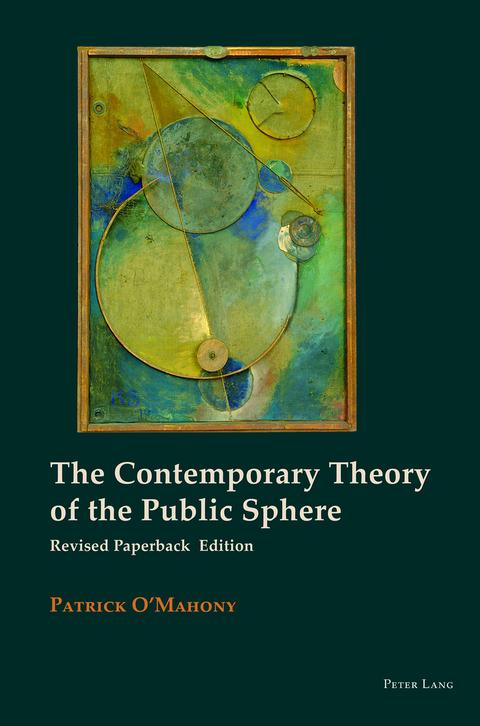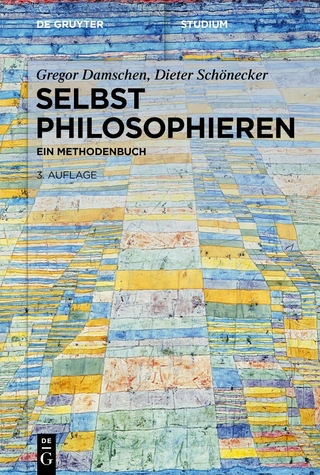
The Contemporary Theory of the Public Sphere
Peter Lang International Academic Publishers (Verlag)
978-1-78997-248-1 (ISBN)
Normative democratic theory does not lie securely above societal argumentation but is rather part of it. We need to know not just how the public should ideally reason, but how it actually does or could in better foreseeable circumstances. For the health and the necessary extension of democracy, given general societal and cosmopolitan challenges, fundamentally depends on the reasoning capacities of publics. The concept of the public sphere is intrinsic to understanding this process, but it has long been limited by its division into the twin approaches of normative argumentation in democratic theory and empirical-theoretical application in the social sciences. This book aims to go beyond this entrenched divide to show how democratic theory can become empirically applicable and the social sciences normatively relevant. It does this by linking democratic theory to the theory of society and relating both to a cognitive-communicative account of public culture. The book contributes significantly to exchanges within and between sociology, philosophy, cultural and communication studies, political science, and cognate disciplines. It also addresses a long-established concern of critical theory to combine empirical and normative perspectives to advance the goal of a better society.
Patrick O’Mahony is Senior Lecturer in Sociology in the School of Sociology, Philosophy, Criminology, Government and Politics at University College, Cork. His published work addresses interrelated theoretical, methodological, and empirical issues in public sphere research in the social sciences, as well as issues in philosophy, mass communication studies, cultural studies, political science, and political theory. On these foundations, he writes on social theory, nationalism, environmental politics, and science and technology. He is presently working on a theory of communicative reason and democracy within a cognitive sociological and wider interdisciplinary framework.
CONTENTS: The Communicative Constructs of Normative Democratic Models – Rawlsian Liberalism and the Idea of Public Reason – Republicanism and the Cultural Foundations of Public Autonomy – The Radical Tradition: Public Contestation of Subjugation – Political Realism: Competitive Public Communication – Deliberative Democracy and Public Deliberation – The Communicative Turn in Democratic Theory – Discourse Ethics, Democratic Discourse, and the Theory of Society – Deontology and Democracy: Limits to the Primacy of the Right – Democratic Theories and the Theory of Society – Cognitive Sociology, Communication, and Social Theory – Discourse, Learning, and Social Integration – Cognitive Sociology and the Public Sphere: Towards a Theoretical Framework – Public Communication and the Public Sphere – Generalized Public Communication Media: Mass and New Media – The Macro-Social Structures of the Public Sphere – The Dynamics of Public Communication – Cosmopolitanism and the Transnational Institutionalization of the Public Sphere – Conclusion: The Public Sphere and Democracy.
«This is a substantial and important work not only of exegesis and synthesis but also of conceptual development extending along the lines of Habermas’s revisions of the 1990s. A close reading of this text by media scholars would undoubtedly prove beneficial not only in helping to tighten up how the public sphere is used as a concept but also in terms of reframing how we conceive of the public sphere operating in contemporary societies.» (Michael Pickering, European Journal of Communication 29, 2014)
| Erscheinungsdatum | 22.01.2019 |
|---|---|
| Zusatzinfo | 11 Illustrations, unspecified |
| Verlagsort | Oxford |
| Sprache | englisch |
| Maße | 150 x 225 mm |
| Gewicht | 726 g |
| Themenwelt | Geisteswissenschaften ► Philosophie ► Allgemeines / Lexika |
| Sozialwissenschaften ► Kommunikation / Medien ► Kommunikationswissenschaft | |
| Sozialwissenschaften ► Soziologie ► Allgemeines / Lexika | |
| ISBN-10 | 1-78997-248-5 / 1789972485 |
| ISBN-13 | 978-1-78997-248-1 / 9781789972481 |
| Zustand | Neuware |
| Haben Sie eine Frage zum Produkt? |
aus dem Bereich


